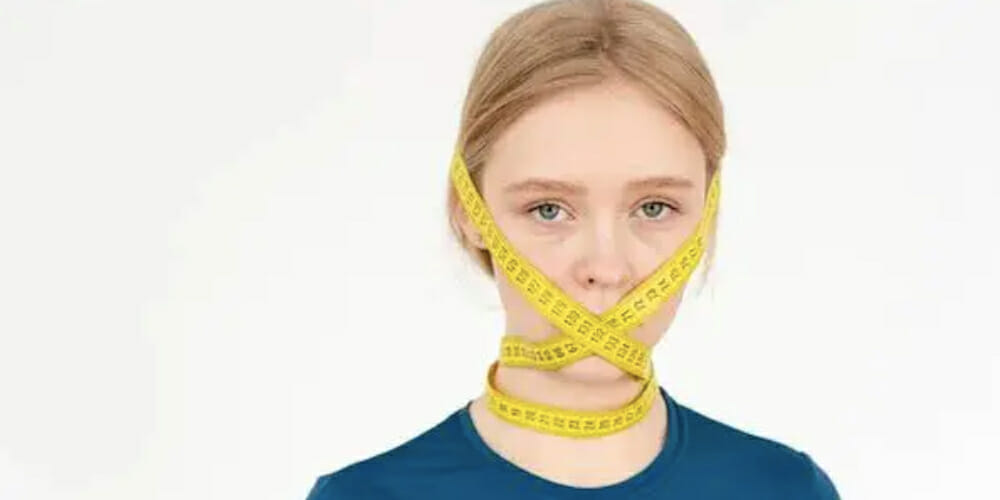
Is Body Shaming Bullying? Let’s Dig In!
Have you ever been made to feel ashamed of your body? Maybe someone commented on your weight, height, or even the way your skin looks.
Being body shamed is not a good feeling, and it’s something that too many people have to deal with. But is body shaming a form of bullying? As someone who has been body shamed, I can tell you that it certainly feels like bullying.
When someone comments negatively about your body, it can hurt and damage your self-esteem.
As such, by delving deeper into this topic, I hope to raise awareness and promote a better understanding of the harm caused by body shaming.
What is Body Shaming?
Body shaming is a form of bullying that targets a person’s physical appearance. It can happen to anyone regardless of age, gender, race, or body type.
It can also take many forms, including negative comments about someone’s weight, height, skin color, hair texture, facial features, or clothing choices.
Further, it involves spreading rumors or making hurtful jokes about someone’s appearance. Body shaming can occur in person, online, or through social media.
It can be done intentionally or unintentionally. Sometimes, people body shame others without realizing the harm they are causing. Other times, it is done intentionally to hurt or humiliate someone.
Is Body Shaming Bullying?
Defining Bullying
As a body positivity advocate, I have heard a lot about body shaming and bullying. But what exactly is bullying?

According to the U.S. Government’s StopBullying.gov, bullying is “unwanted, aggressive behavior among school-aged children that involves a real or perceived power imbalance.”
It can take many forms, including physical, verbal, and cyberbullying.
Comparing Body Shaming and Bullying
So, is body shaming a form of bullying? The answer is not as straightforward as you might think.
While body shaming can be hurtful and damaging, it may not always meet the criteria for bullying.
For example, if someone makes a one-time comment about your appearance, it may be hurtful, but it may not rise to the level of bullying.
On the other hand, if someone repeatedly makes negative comments about your body, spreads rumors or lies about you, or uses social media to harass or embarrass you, that may be considered bullying.
In these cases, the behavior is hurtful and involves a power imbalance, as the bully uses their words or actions to assert dominance over you.
It’s also worth noting that body shaming can be a form of bullying in a group setting.
For instance, if a group of people repeatedly comment negatively about someone’s appearance or exclude them from social activities because of their body size or shape, that can be considered bullying.
Ultimately, whether or not body shaming is considered bullying depends on the specific circumstances and the severity and frequency of the behavior.
However, regardless of whether it meets the definition of bullying, body shaming is never okay and can have serious negative consequences for a person’s mental health and well-being.
How to Address Body Shaming and Bullying
This table will explore examples of body shaming and bullying and how to address them.
| Examples of Body Shaming and Bullying | Definition | Examples | How to Address |
|---|---|---|---|
| Criticizing someone’s weight, body shape, or size | Making negative comments about someone’s physical appearance. | “You’re so fat; you should lose weight.” | Speak up and say it’s not okay to comment on someone’s body size or shape. Encourage body positivity and self-love. |
| Spreading rumors or gossip about someone’s body | Sharing false or exaggerated information about someone’s body with others. | “I heard she has an eating disorder.” | Confront the person spreading the rumors and let them know it’s unacceptable. Offer support to the victim and encourage them to speak up. |
| Excluding someone from social events or activities because of their body | Purposefully leaving someone out of social events or activities because of their physical appearance. | “We can’t invite her to the pool party; she’s too fat.” | Include everyone and make sure no one is left out. Encourage body positivity and acceptance. |
| Posting hurtful comments or images about someone’s body on social media | Using social media platforms to publicly shame or bully someone for their physical appearance. | Sharing a meme making fun of someone’s weight. | Report the post or comment and encourage others to do the same. Speak out against cyberbullying and offer support to the victim. |
| Engaging in fatphobia | Discriminating against or stigmatizing people who are fat or overweight. | Assuming all fat people are lazy or unhealthy. | Speak up and challenge stereotypes and discrimination. Educate others about the harms of fatphobia. |
| Making fun of someone’s eating habits or food choices | Mocking or belittling someone for what they eat or how they eat. | “Why are you eating that? It’s so gross.” | Speak up and say it’s not okay to make fun of someone’s food choices or eating habits. Encourage body positivity and intuitive eating. |
| Pressuring someone to conform to certain beauty standards | Expecting someone to look a certain way based on societal beauty standards. | “You’d be so much prettier if you lost weight.” | Encourage body positivity and self-love. Challenge beauty standards and promote diversity in beauty. |
| Discriminating against someone based on their body | Treating someone unfairly or differently because of their physical appearance. | Refusing to hire someone because of their weight. | File a complaint with the Equal Employment Opportunity Commission (EEOC) or a similar organization in your country. Advocate for inclusive and diverse hiring policies focusing on qualifications, skills, and abilities rather than physical appearance. |
| Giving unsolicited advice about someone’s body | Offering unwanted or unnecessary comments or suggestions about someone’s physical appearance. | “Have you thought about losing weight?” | If someone comments on your weight or body, you can calmly and assertively express your feelings and boundaries. For example, you might say, “I appreciate your concern, but my body is my own business. Let’s talk about something else.” |
It is important to recognize the harm caused by body shaming and bullying and take steps to address it.
Remember that everyone deserves to be treated with respect and dignity, regardless of their body size or shape. Let’s work together to promote body positivity and self-acceptance for all.
The Role of Social Media in Body Shaming and Bullying
Social media has become a breeding ground for body shaming and bullying.

As someone who has experienced this firsthand, I can tell you that it can be incredibly damaging to one’s self-esteem and mental health.
Some platforms often emphasize physical appearance and make it easy for users to post hurtful comments about others.
People feel emboldened to say things online that they would never say in person, and this can have a huge influence on one’s body image.
One study found that body shaming can occur in social media and the real world.
It’s an unrepeated action in which a person expresses unsolicited, mostly negative opinions or comments about the target’s body.
This can include making critical comments, using a sarcastic tone, or humiliating someone in individual relationships or on social media. Children are especially vulnerable to body shaming on social media.
They are often exposed to unrealistic beauty standards and experience bullying and peer pressure to conform. As a parent, limiting your child’s social media exposure and setting rules for using it is important.
Encourage them to focus on their strengths and talents rather than their physical appearance. It’s important to remember that body shaming can be a form of bullying.
We must work together to create a culture of body positivity and acceptance, both online and offline.
Let’s lift each other and celebrate our differences instead of tearing each other down.
The Impact of Body Shaming and Bullying
On Mental Health

As someone who has experienced body shaming and bullying, I understand how damaging it can be to one’s mental health. Body shaming can lead to feelings of shame, anxiety, and depression.
It can also cause individuals to develop a negative body image, further impacting their self-esteem and overall mental well-being.
Moreover, studies have shown that body shaming can lead to eating disorders like anorexia and bulimia.
It can also cause individuals to engage in unhealthy weight loss behaviors, such as extreme dieting or over-exercising.
These behaviors can harm physical health and lead to long-term health complications.
On Physical Health

In addition to its impact on mental health, body shaming, and bullying can also negatively affect physical health.
Research has shown that individuals who experience body shaming are more likely to engage in unhealthy behaviors, such as smoking and excessive drinking.
Furthermore, body shaming and bullying can impact an individual’s ability to engage in physical activity.
Those who have experienced the two may feel self-conscious about their appearance and avoid activities that involve being seen in public, such as going to the gym or participating in sports.
Wrapping Up
Body shaming is a form of bullying that can have serious negative consequences on mental health. It can lead to eating disorders, depression, anxiety, and low self-esteem.
Body shaming is not limited to comments about weight or size but can also include comments about skin color, hair texture, and other physical features.
If you or someone you know is experiencing body shaming, seeking help and support is important. Talk to a trusted friend or family member, or seek professional help from a therapist or counselor.
Remember, we all deserve love and respect, regardless of our size, shape, or appearance. Let’s work together to create a world where body shaming is not tolerated and everyone is accepted for who they are.
Resources
Studies:
- Puhl, R. M., & Heuer, C. A. (2009). The stigma of obesity: A review and update. Obesity (Silver Spring, Md.), 17(5), 941–964. https://doi.org/10.1038/oby.2008.636
- Bullying Experiences and Compromised Academic Performance Across Middle School Grades: https://journals.sagepub.com/doi/10.1177/0272431610379415
Organizations:
- StopBullying.gov: https://www.stopbullying.gov/
Books:
- “Body Positive Power: Because Life Is Already Happening and You Don’t Need Flat Abs to Live It” by Megan Jayne Crabbe
- “Fearing the Black Body: The Racial Origins of Fat Phobia” by Sabrina Strings
Websites:
- Words Have Weight: The Many Forms of Body-Shaming: https://www.psychologytoday.com/intl/blog/words-wellness/202102/words-have-weight-the-many-forms-body-shaming